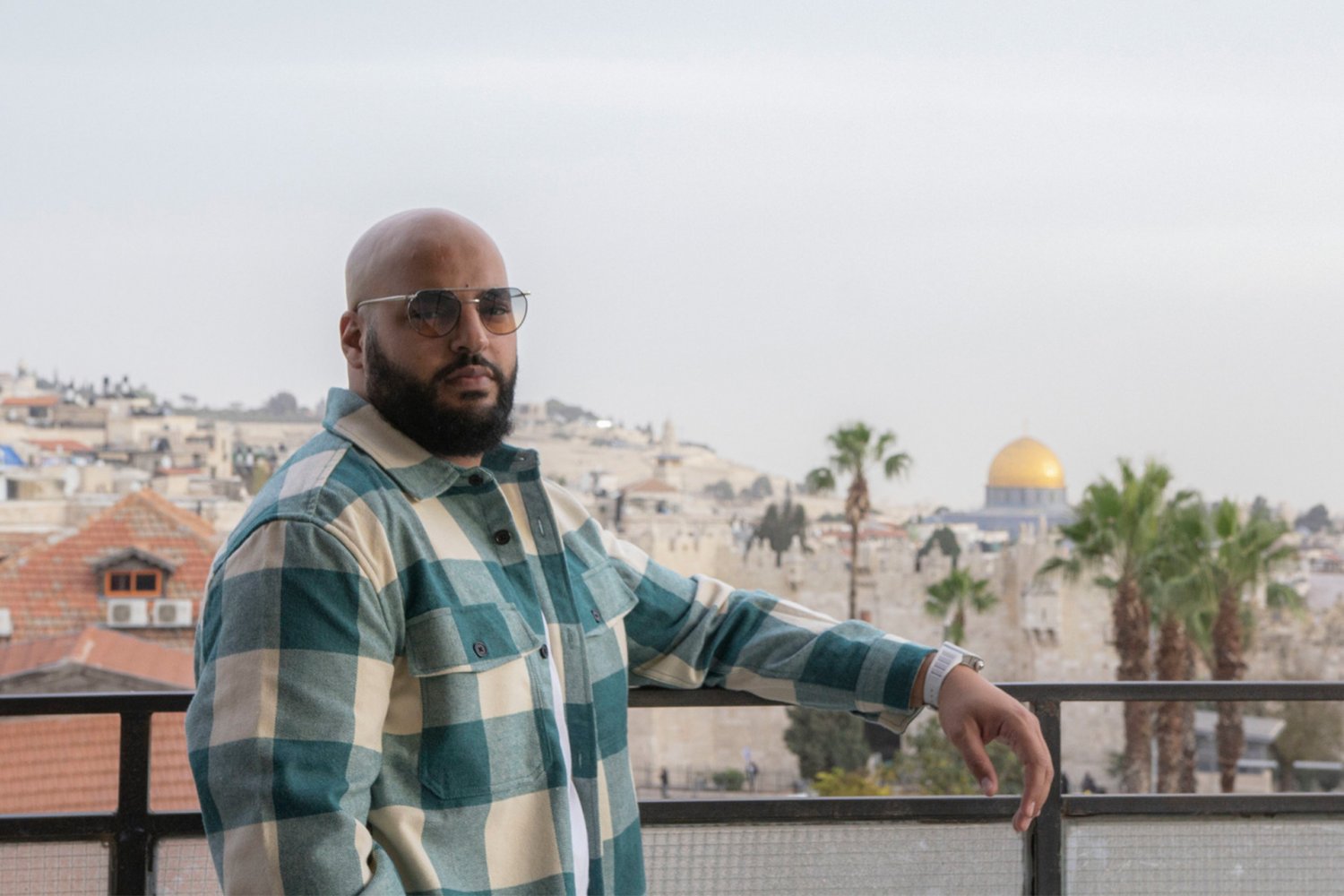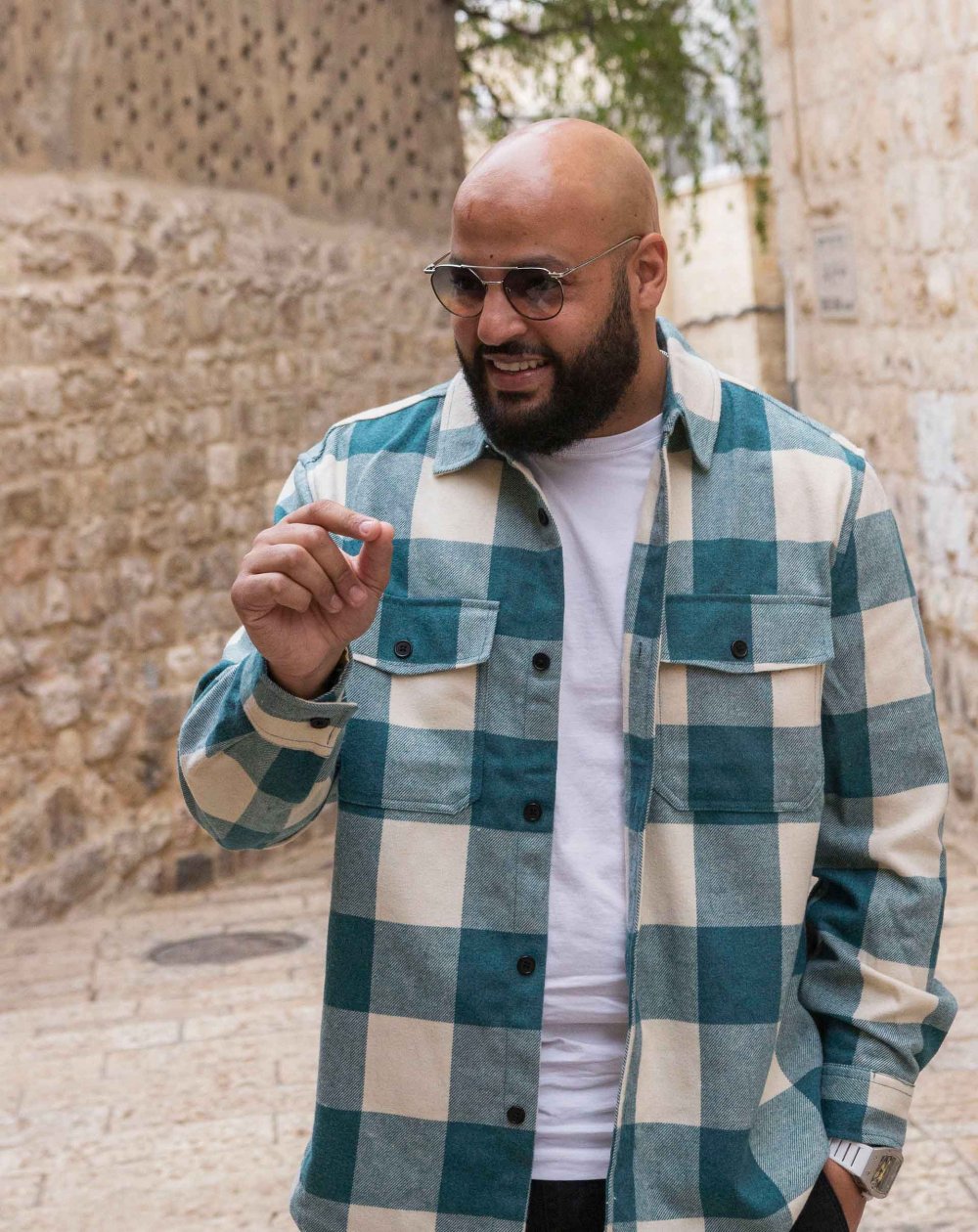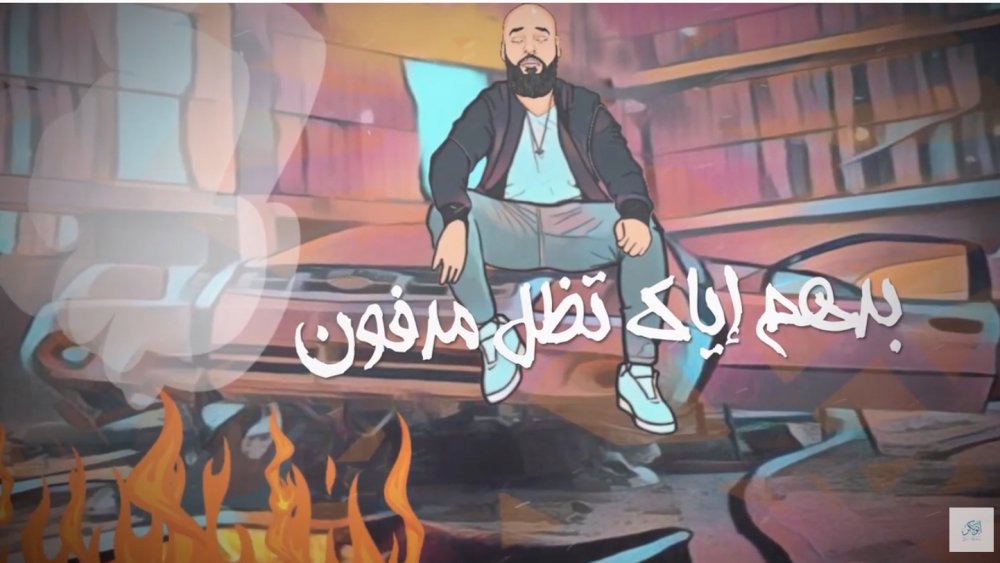For Ahmad Abu Baker, walking the cobbled streets in between the narrow corners of the Old City of Jerusalem is an experience of the senses. “Only those who were born here will see, smell, and feel the spirit and soul that is Jerusalem.” As for the sound that accompanies his walks, that is the magic of hip-hop.
Ahmad Abu Baker, who goes by the artist’s name “Abu Baker,” almost discovered rap by coincidence. As he was heading to play basketball in 1999 at De La Salle (Frères High School at the New Gate of Jerusalem), he picked up his brother’s CD Walkman player. Once he played the music, he was immediately captivated.
It was the voice of rap.
“I hardly spoke English at the time, and I was generally disinterested in school, but I started going to my English teacher and asking about the meaning of some verses. I was studying the words of those songs like it was my own homework. . . . I used to go to my computer, search for the lyrics, print them, and learn them. I would decipher their codes like it was actual research.”



